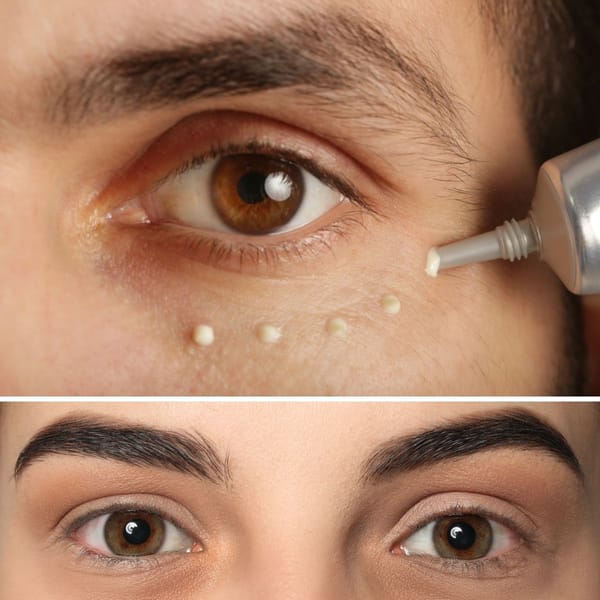Gingivitis is a common and mild form of gum disease that can lead to more serious conditions if left untreated. Good oral hygiene practices, including the use of mouthwash, can play a significant role in treating and preventing gingivitis. This article will delve into how mouthwash can help get rid of gingivitis, the importance of a comprehensive oral hygiene routine, and other effective methods to maintain healthy gums.
Understanding Gingivitis
What is Gingivitis?
Gingivitis is an inflammation of the gums, typically caused by plaque buildup on the teeth. It is the early stage of gum disease and can progress to periodontal disease if not addressed. Common symptoms include red, swollen gums, bleeding during brushing or flossing, and bad breath.
Causes of Gingivitis
- Plaque and Tartar Buildup: Plaque is a sticky film of bacteria that forms on teeth. If not removed, it hardens into tartar, leading to gingivitis and further gum disease.
- Poor Oral Hygiene: Inadequate brushing and flossing allow plaque to build up, causing gum inflammation and gingivitis.
- Other Contributing Factors: Smoking, certain medications, and medical conditions like diabetes can increase the risk of developing gingivitis.
Importance of Good Oral Hygiene
Brushing and Flossing
Proper brushing and flossing are crucial for removing plaque and preventing gingivitis. Brush twice a day with fluoride toothpaste and floss daily to maintain good oral hygiene.
Regular Dental Checkups
Regular professional dental cleanings remove plaque and tartar that regular brushing and flossing can't. Regular checkups help catch gingivitis in its early stages.
Healthy Diet
A balanced diet supports oral health. Foods rich in vitamins and minerals, especially vitamin C and calcium, help strengthen gums and teeth.
Can Mouthwash Get Rid of Gingivitis?
Types of Mouthwash
There are various types of mouthwash, each serving different purposes. Some are cosmetic, while others have therapeutic benefits, including antiseptic and anti-inflammatory properties.
Antiseptic Mouthwash
Antiseptic mouthwash contains ingredients like chlorhexidine and essential oils that kill bacteria and reduce plaque, helping to treat and prevent gingivitis.
Fluoride Mouthwash
Fluoride mouthwash helps strengthen teeth and prevent decay but may not be as effective in reducing gum inflammation.
Mouthwash with Antimicrobial Properties
Mouthwashes containing antimicrobial agents can reduce bacteria and plaque, thus helping to prevent and treat gingivitis.
How to Use Mouthwash for Gingivitis
Proper Technique
Rinse your mouth with mouthwash for 30 seconds to one minute after brushing and flossing. Spit it out; do not swallow.
Frequency of Use
Use mouthwash twice daily for optimal results. Overuse can cause further irritation or disrupt the oral microbiome.
Choosing the Best Mouthwash
Look for mouthwashes with the American Dental Association (ADA) Seal of Acceptance. These have been tested for safety and effectiveness.
Other Self-Care Methods to Treat Gingivitis
Brushing and Flossing Techniques
Use a soft-bristled toothbrush and gentle circular motions to clean your teeth. Ensure you reach the gum line where plaque tends to accumulate.
Warm Salt Water Rinse
Rinsing with warm salt water can help reduce inflammation and soothe irritated gums.
Maintaining a Healthy Diet
Eating a balanced diet with plenty of fruits, vegetables, and dairy products helps maintain gum health and prevents plaque buildup.
Avoiding Tobacco Products
Smoking and chewing tobacco can worsen gum disease and hinder the healing process.
The Role of Professional Dental Cleanings
Deep Cleaning
Also known as scaling and root planing, this procedure removes plaque and tartar from below the gum line and smooths the tooth root to help gums reattach to the tooth.
Regular Dental Visits
Regular dental checkups and cleanings are crucial for maintaining oral health and preventing gum disease.
Treating Advanced Gum Disease
If gingivitis progresses to periodontal disease, more intensive treatments like surgery may be necessary.
The Healing Process of Gingivitis
Early Stages
In the early stages, gingivitis can be reversed with improved oral hygiene and the use of antiseptic mouthwash.
Professional Intervention
If home care isn't enough, a dentist can provide professional treatments to help heal the gums.
Long-Term Care
Maintaining good oral hygiene, regular dental visits, and a healthy lifestyle are key to preventing the recurrence of gingivitis.
Preventing Gingivitis
Establishing a Routine
Consistent brushing, flossing, and the use of mouthwash are essential to prevent gingivitis.
Monitoring Oral Health
Regularly check your gums for signs of inflammation, and consult a dentist if you notice any changes.
Using the Right Products
Choose oral care products that are effective against plaque and gingivitis, and are suitable for your specific needs.
Understanding the Connection Between Gum Health and Overall Health
Impact of Gingivitis on General Health
Gingivitis and periodontal disease have been linked to various health issues, including heart disease, diabetes, and respiratory infections.
Strengthening the Immune System
Maintaining good oral hygiene can help strengthen your immune system and prevent infections.
Reducing Inflammation
By reducing gum inflammation, you can lower the risk of systemic inflammation, which is associated with many chronic diseases.
The Role of Fluoride Toothpaste in Preventing Gingivitis
Strengthening Teeth
Fluoride toothpaste helps strengthen teeth and prevents cavities, which is crucial for maintaining overall oral health.
Reducing Plaque
Regular use of fluoride toothpaste can help reduce plaque buildup, which in turn helps prevent gingivitis.
Using Antiseptic Mouthwash to Kill Bacteria
Effectiveness
Antiseptic mouthwash is effective in killing bacteria that cause plaque and gingivitis. Its antimicrobial properties help maintain a healthy oral environment.
Frequency
For best results, use antiseptic mouthwash twice daily after brushing and flossing.
Home Remedies for Gingivitis
Natural Ingredients
Home remedies like warm salt water rinses, aloe vera, and tea tree oil can help reduce gum inflammation and promote healing.
Self-Care Methods
Consistent oral hygiene practices, a balanced diet, and avoiding tobacco products are essential for managing and preventing gingivitis.
Scientific Evidence on Mouthwash and Gingivitis
Studies and Research
Peer-reviewed studies have shown that mouthwash, particularly those with antimicrobial and antiseptic properties, can significantly reduce plaque and gingivitis.
Recommendations
Dentists and oral health experts recommend the use of mouthwash as part of a comprehensive oral hygiene routine to prevent and treat gingivitis.
Common Misconceptions About Mouthwash
Mouthwash as a Substitute
Mouthwash should not be used as a substitute for brushing and flossing but rather as a complementary practice in your oral hygiene routine.
Overuse of Mouthwash
Overuse of mouthwash can cause further irritation and disrupt the balance of the oral microbiome. Use as directed for best results.
Frequently Asked Questions
1. Can mouthwash alone cure gingivitis?
Mouthwash can help reduce bacteria and plaque, but it should be used in conjunction with good oral hygiene practices, including brushing and flossing, and regular dental checkups for best results.
2. How long does it take for gingivitis to heal?
With proper care, gingivitis can improve within a few days to a couple of weeks. However, severe cases may take longer and require professional treatment.
3. What should I do if my gingivitis doesn't improve?
If your gingivitis doesn't improve with good oral hygiene and the use of mouthwash, consult your dentist. You may need professional cleaning or other treatments to address the issue.
Conclusion
Mouthwash can be an effective tool in combating gingivitis when used as part of a comprehensive oral hygiene routine. By understanding the causes and treatment options for gingivitis, you can take proactive steps to maintain healthy gums and prevent the progression of gum disease.







